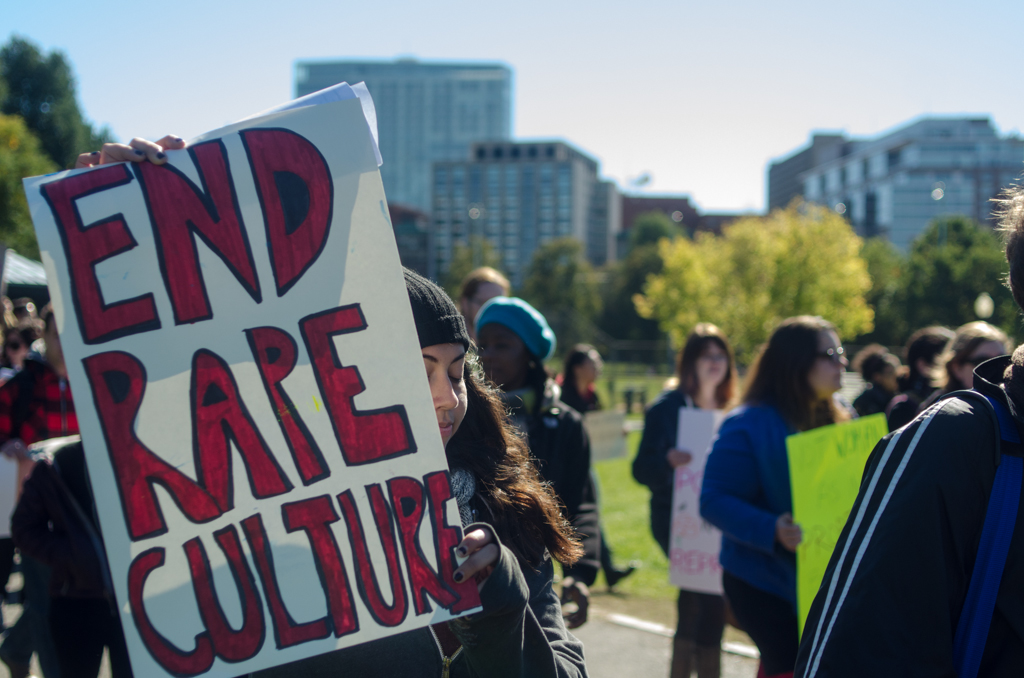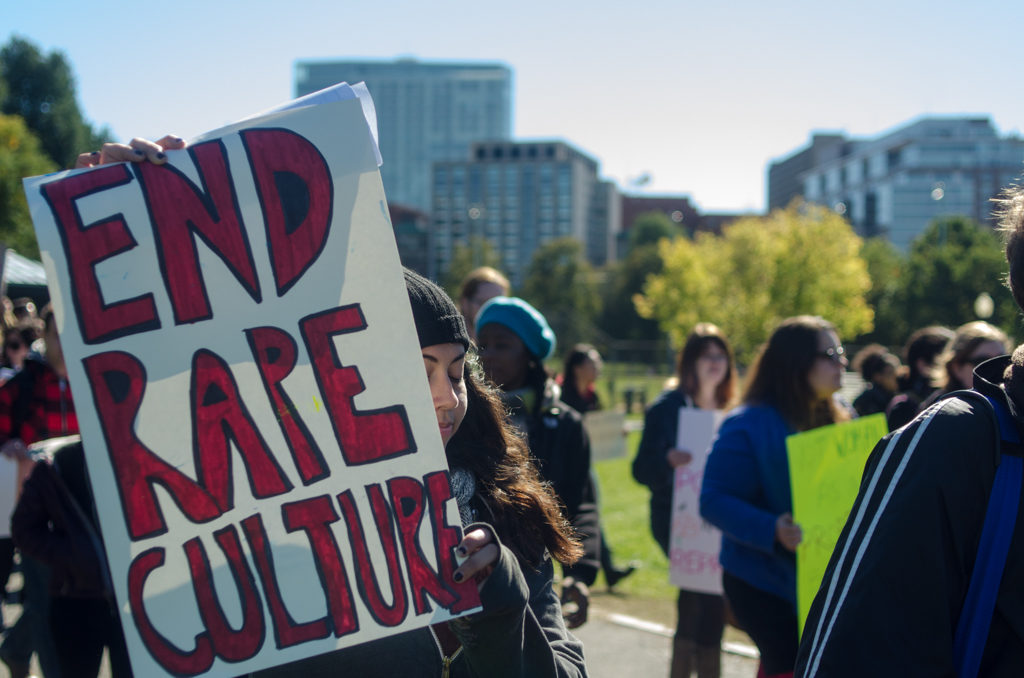I was 14 years old when I was catcalled and harassed on the street for the first time. Still unaccustomed to my newly developed breasts and hips, I was shocked, mortified and angry, but I continued walking silently, ignoring my loud “admirer” while he shouted after me, “What’s wrong baby? You shy?”
When I returned home, I told my mom what had happened. She didn’t even look at me while saying, “You can’t flounce around wearing low-cut tops. Now you know better.”
I looked down, confused, at my top, which was a loose-fitting t-shirt that didn’t even show a glimpse of my collarbone. Back then, I didn’t have the words to articulate my feelings of outrage at this gross injustice. How was any of this my fault?
This was my first, and sadly not last, introduction to rape culture. It has followed me — and all other young girls and women — throughout life. The idea that somehow the woman “asked” to be assaulted or abused because of her actions, clothes or words is despicable. Our culture still excuses men for their behavior and blames victims.
Mainstream media continues to perpetuate rape culture. Since 2004, dozens of women have come forward to accuse actor and comedian Bill Cosby of rape. Eleven years later, in July 2015, Cosby admitted in his deposition to acquiring prescription Quaaludes in order to have sex with women.
Cosby’s admission led to many articles that evaded using the word “rape” or “assault,” even though several of his accusers have alleged that he is guilty of these. The “Hollywood Reporter” published an article entitled “Bill Cosby Reveals Tactics for Sleeping With Women, Admits Paying Hush Money in New Documents.”
Tactics for sleeping with women? The connotations for “sleeping with” are less harsh than the word “rape” and therefore unconsciously depicts Cosby in a much more passive role than what he allegedly played.
This language used by the media perpetuates rape culture by downplaying rape. What was the worst part of Cosby’s admission? It was only then that many members of the public even believed that the 41 women who came forward were telling the truth.
Marc Lamont Hill tweeted on July 6, 2015, “Rape culture = NEEDING Cosby to admit he’s guilty before we believe it. If that’s the standard, almost no one would be guilty of rape.”
The most recent example is the singer Kesha’s ongoing legal battle with her producer, Dr. Luke. He denies her allegations of physical and emotional abuse and sexual assault, tweeting on Feb. 22, “I didn’t rape Kesha and I have never had sex with her. Kesha and I were friends for many years and she was like my little sister.” Another of his tweets on the same day states “I have three sisters, a daughter and a son with my girlfriend, and a feminist mom who raised me right.”
This, too, is rape culture. There is an idea that a person cannot be a rapist because they were “raised right,” have a daughter, are a good friend or for countless other meaningless reasons. Though these statements may be true, they have no real effect on one’s ability to be a rapist. As Emma Gray of The Huffington Post asserted, it is “dangerous to perpetuate the idea that having a feminist mom or… being a productive professional collaborator means that a person isn’t, or couldn’t be, a rapist.”
We cannot continue to fault women for being catcalled or assaulted by others. We cannot continue to preserve the idea that “nice people” do not commit rape and abuse.
Rape culture hurts everyone by spreading unconscious biases. Until the media ceases to treat cases of rape this way, rape culture will continue to pervade our society.




